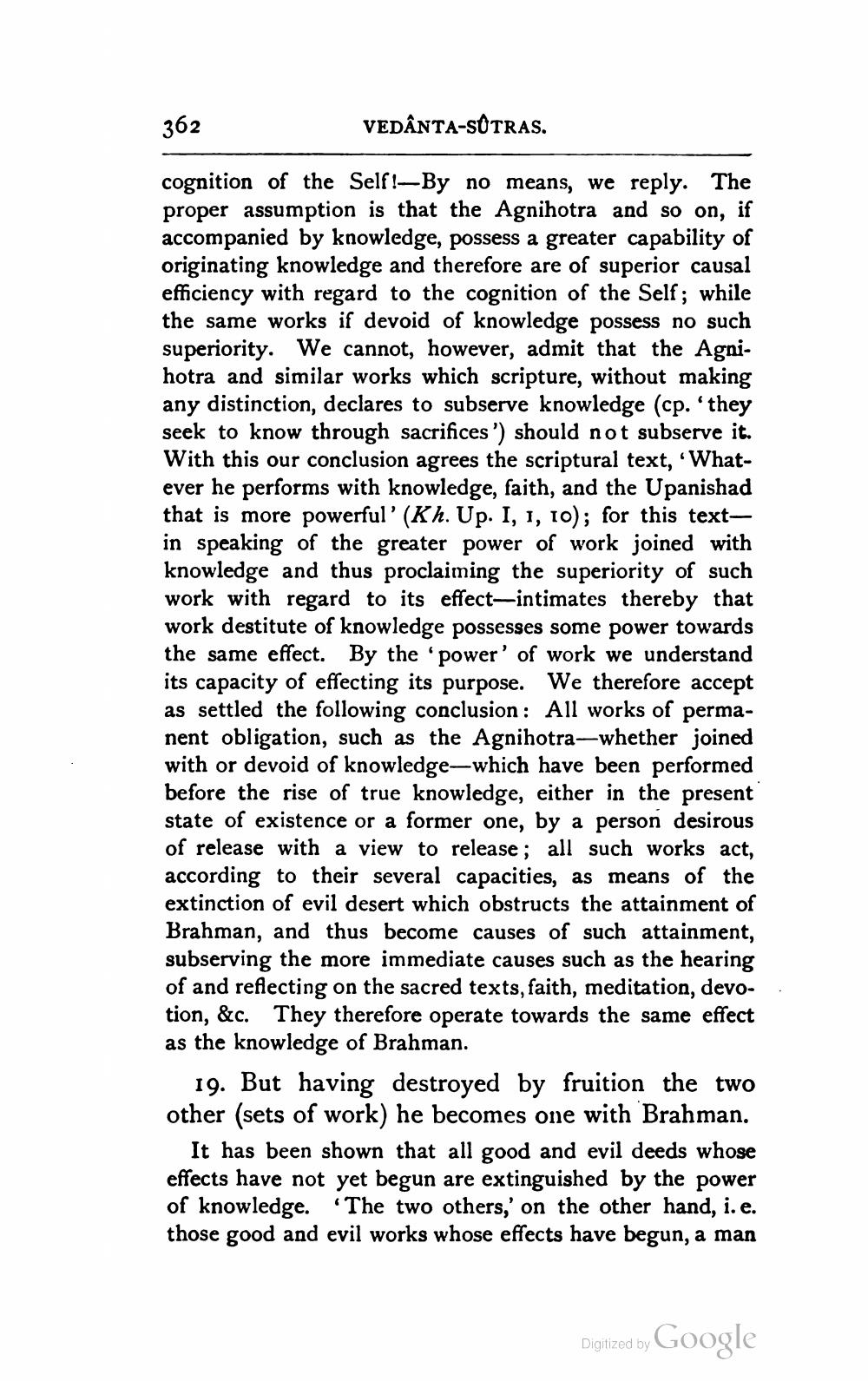________________
362
VEDÂNTA-SOTRAS.
cognition of the Self!-By no means, we reply. The proper assumption is that the Agnihotra and so on, if accompanied by knowledge, possess a greater capability of originating knowledge and therefore are of superior causal efficiency with regard to the cognition of the Self; while the same works if devoid of knowledge possess no such superiority. We cannot, however, admit that the Agnihotra and similar works which scripture, without making any distinction, declares to subserve knowledge (cp. 'they seek to know through sacrifices') should not subserve it. With this our conclusion agrees the scriptural text, “Whatever he performs with knowledge, faith, and the Upanishad that is more powerful' (Kh. Up. I, 1, 10); for this textin speaking of the greater power of work joined with knowledge and thus proclaiming the superiority of such work with regard to its effect-intimates thereby that work destitute of knowledge possesses some power towards the same effect. By the 'power' of work we understand its capacity of effecting its purpose. We therefore accept as settled the following conclusion: All works of permanent obligation, such as the Agnihotra—whether joined with or devoid of knowledge—which have been performed before the rise of true knowledge, either in the present state of existence or a former one, by a person desirous of release with a view to release; all such works act, according to their several capacities, as means of the extinction of evil desert which obstructs the attainment of Brahman, and thus become causes of such attainment, subserving the more immediate causes such as the hearing of and reflecting on the sacred texts, faith, meditation, devotion, &c. They therefore operate towards the same effect as the knowledge of Brahman.
19. But having destroyed by fruition the two other (sets of work) he becomes one with Brahman.
It has been shown that all good and evil deeds whose effects have not yet begun are extinguished by the power of knowledge. “The two others,' on the other hand, i.e. those good and evil works whose effects have begun, a man
Digitized by
Digized by Google




